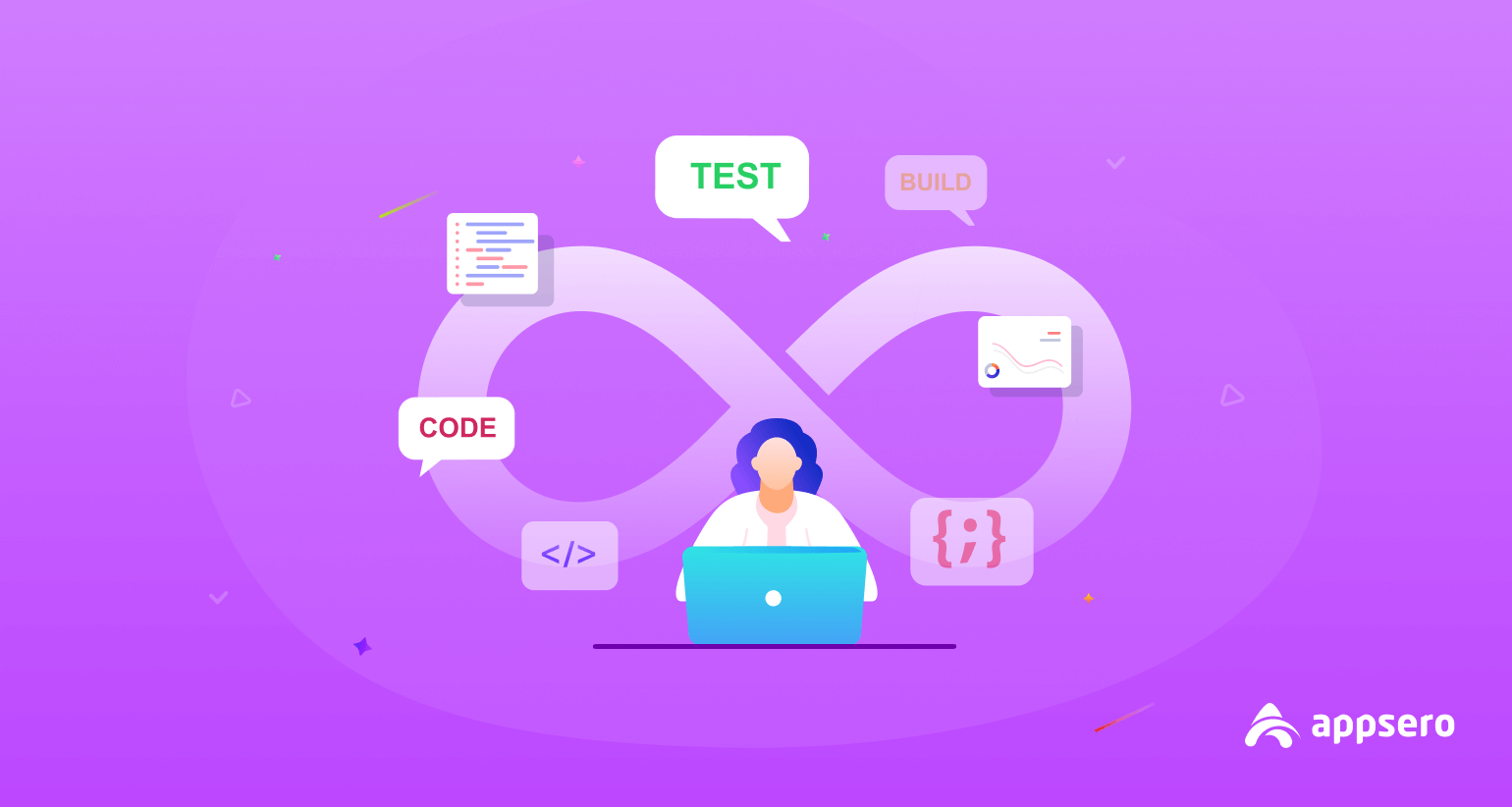
How to Be a DevOps Engineer: 8 Remarkable Tips to Follow
We recognize software engineers for prioritizing their proficiency over programming language. Sometimes the positions are defined according to their working area, for instance, “front-end engineer,” “back-end engineer,” or “full-stack engineer,” who can work on both ends.
DevOps is an entirely different type of role compared to the above programmer’s positions. In a short and clear view-
DevOps= Development+Operations
DevOps engineering is an important job in the job market today, and it is becoming more and more popular. A DevOps engineer has multiple options to work in any sector of IT.
If you are here to learn how to be a DevOps engineer, don’t forget to scan the blog until the end.
➤ What Does a DevOps Engineer Actually Do
➤ 8 Tips to Become a DevOps Engineer
➤ Is DevOps a Good Career Choice in 2023
➤ What Skills Should a DevOps Engineer Acquire
What Does a DevOps Engineer Actually Do?
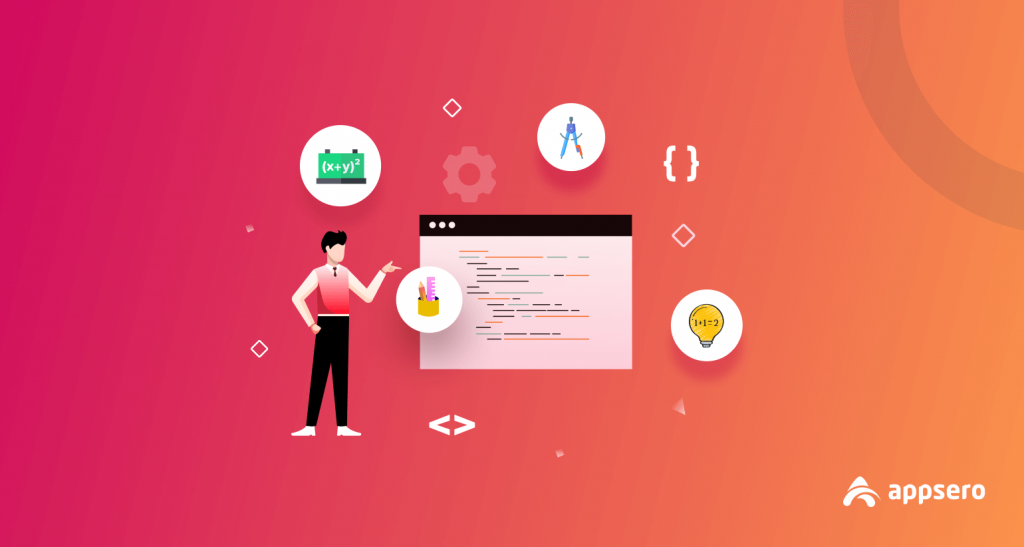
To understand a DevOps engineer’s position and responsibilities, we need to know their working areas.
◼︎ The development section
The employees in the development section only prioritize the construction and completion of any project. They also have to update other existing projects.
By development, we didn’t only mean a tool or an application. The developers literally make audio, video, code writings, and podcasts. Most importantly, DevOps have to keep them in coding practices. Furthermore, they have to listen to the people working in the operation section.
◼︎ The operation section
The people working in the operation section create logistical plans, organization, and supervision of every task to reach preferred company goals. Their work is to make the organization run smoothly and see if everyone’s work is done on time.
Moreover, the complete management of a company is handled through the operation section. Here are some things that the operation section runs:-
- Acquire experts from other working areas.
- Manage human resources.
- Operate relations with people working in different areas.
- Improve the sustainability of the company.
- Control the customer care section.
- Understand any global trends involving their manufactured product.
- Supervise cost-effectiveness.
In a nutshell, a DevOps engineer is an officer who knows a lot about all of the parts of an IT company. So, instead of working in one section of a company, he works in both.
They hold expertise in-
- Automation
- Infrastructure management
- Administration
- System operations
- Auditor
- Infrastructure analysis
- Programming
- Advertisement management and more
They are multi-skilled professionals and don’t work in a fixed area.
DevOps engineers even have the potential to become a CEO of a company. Other than professional skills, a skilled DevOps engineer possesses many social skills, such as communication, eye contact, and being approachable to make the working environment comfortable for their associates.
Moreover, a DevOps engineer must comprehend the basic system architecture and experience in provisioning. Also, he needs to be familiar with the standard developer toolset, such as reviewing codes, writing unit tests, and understanding complex code principles.
6 Effective Tips to Become a DevOps Engineer
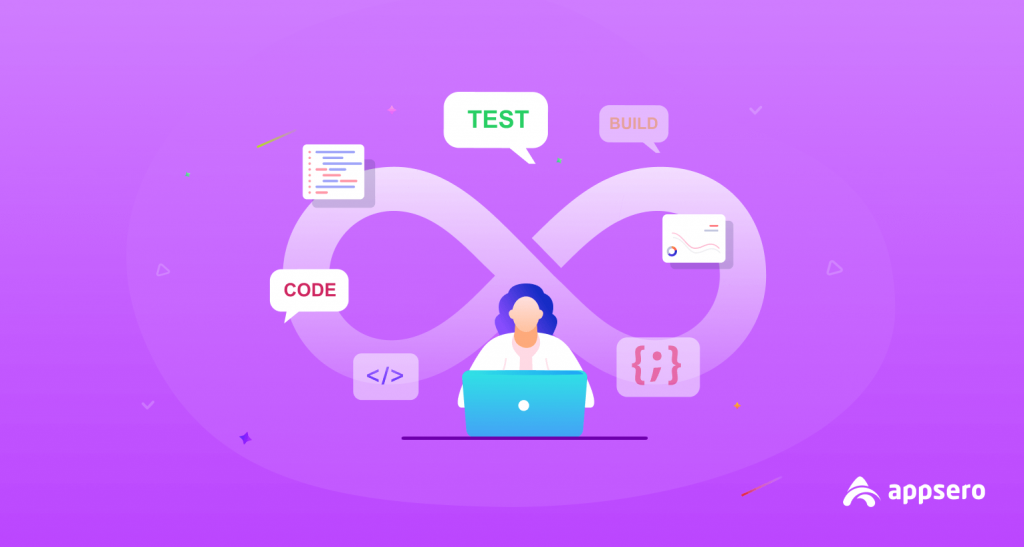
These tips will help you learn everything you need to know to be a great DevOps engineer.
01. Complete essential education from the right branch
You have to establish a strong foundation for your future job. There are 3 different education levels you have to think about,
- High school diploma.
- Bachelor’s Degree.
- Master’s Degree.
The high school diploma doesn’t consist of any exact subjects. Getting a job in the IT sector is possible with a high school diploma, but getting a DevOps position is impossible. The average salary in the high school diploma tier is 1.2 million startups.
You should complete a bachelor’s in CSE (Computer Science and Engineering) or a related subject, such as NDHE (Network Defense and Hacking Ethics), Computer Investigations, and Computer Programming. But, it’s best to enroll in CSE because companies prioritize this subject more than others for the DevOps engineer position.
There are many institutions in the world you can enroll in. The universities below are best for a bachelor’s degree,
- Massachusetts Institute of Technology (USA)
- Oxford (UK)
- Imperial College London (UK)
- LMU Munich (Germany)
- Stanford University (USA)
02. Prioritize Linux concepts
Almost every IT working environment used something based on the Linux/Unix OS system. Nowadays, nearly every company uses the Linux operating system for their applications.
A case study from the Linux foundation states that almost 90% of public cloud infrastructure’s workload runs on Linux.
There are some standard Linux distributions that you should know about, such as RHEL, Ubuntu, Centos, and CoreOS. Keep in mind that you don’t need to be a master in Linux to qualify for the job. Just have a clear understanding of this OS system to perform tasks in any given situation.
You will also need to know popular OS concepts, such as Memory Management, I/O Management, and Process Management.
To have a mastery level understanding of Linux, you have to learn or understand these key components,
- Linux booting process.
- Web server installation and configuration.
- Linux systems.
- SSH (Secure Socket Shell).
- Linux important protocols (TLS< TCP< UDP< FTP< SFTP< SCP).
- Linux file systems
- Performance optimization for Linux.
- Volumes.
- Troubleshooting problems in Linux.
03. Learn about the IT infrastructure
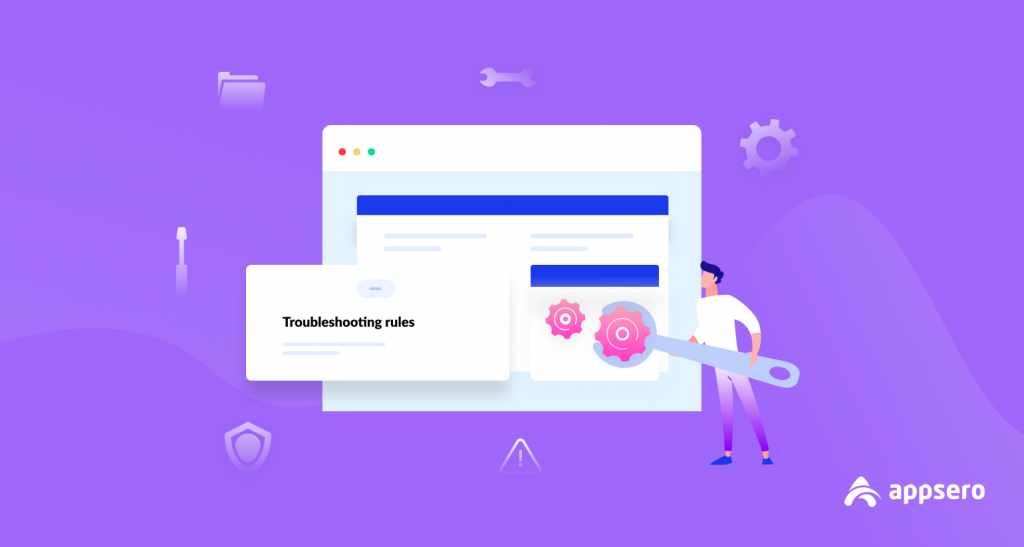
Every company has a specific infrastructure that works as a building block for every action taken. It can be a data center, power, computing platform, web server, or intrusion detection system. Companies can have many IT infrastructures depending on their operation scale.
One of the largest retail platforms, Amazon has more than 30 data centers around the globe. These giant data centers are more extensive than a football field and hold up to 803,608 high-powered 1U servers.
So, the IT infrastructures of a specific company can be large and complex but hold significant value for production. Understanding infrastructures is one of the most crucial tips for any DevOps developer manual.
Moreover, knowing about this area can give you significant control and leadership over your team. It also improves collaboration with the infrastructure management team and helps finish processes faster.
Remember saying, “I did the initial troubleshooting and found these issues. Would you mind checking it further and aiding us in resolving any other existing cases?” is better than, “the piece is faulty; fix it, please.”
04. Combine agile in DevOps workflow
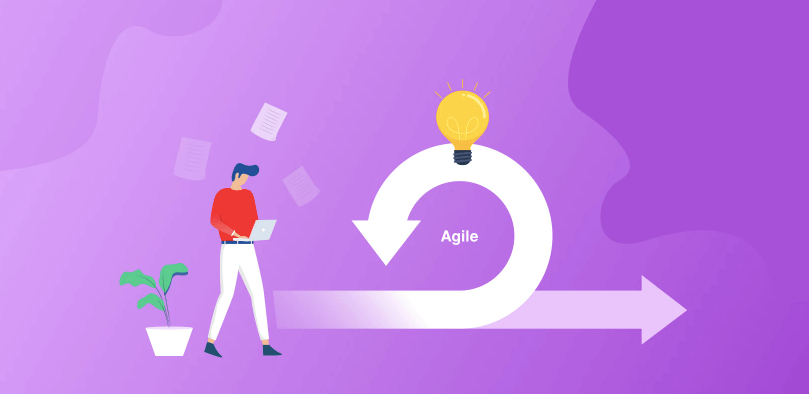
Agile in engineering states as a set of rules that can help an engineer cope with any small change, deliver results in time, and perform any task more efficiently. But, this agility will have to improve customer experience and business.
Moreover, agile improves the teamwork of people from different working areas.
Agility is one of the most crucial skills in a DevOps engineer manual. Agile rules can be used in various manifestos and later executed in various forms, such as Scrum, Kanban, and XP. Among other implementations, Scrum is one of the most preferred implementations.
However, various teams and workflows require different implementations of agile. So, you should always prefer more than one enactment and see which one goes better with your team.
05. Prepare for interviews
Preparing for anything will not have any worth if you don’t get the job. So, get ready for a smooth interview session. The DevOps job interviews are pretty similar to any other developer interviews.
But, preparation for exams is crucial too because some job positions can be pretty crowded, and companies take a short exam to select a group of individuals for the final interview.
If you are Asian, you must absolutely prepare for a test before the interview. For a massive number of candidates in the IT sector, almost 90% of Asian companies take tests before the final interview.
To prepare, you will need to be fluent in English and have good speaking skills. The interviewers can ask questions about these particular subjects:
- The definition of DevOps and its working area.
- Difference between DevOps and Agile methodology.
- Development lifecycle and pros-cons.
- Your preferred and popular DevOps tools.
- What is your team management skill?
- How much pressure can you go through?
Moreover, interviewers can ask questions about relevant topics around DevOps and the latest technologies.
06. Understand networking security

Any working environment requires a secure network connection to protect organization resources from outer malicious attempts. So, DevOps engineers need to know important network connection terms like “data transfer,” “servers,” and “ADSL.”
You can learn from online courses to clearly understand networking concepts. The internet can provide an incredible amount of startup knowledge. Many DevOps engineering courses online have a brief explanation of these subjects.
DevOps engineers also often need to work on the security status of an environment and other processes, such as deployment, testing, development, etc.
You can present security policies for the organization’s management by controlling network access, automating security procedures, etc.
Is DevOps a Good Career Choice?

Well, jobs in the IT sector have pretty good careers and are more demanding compared to other industries like arts and design, architecture, education, and legal professional studies.
Sometimes, you may get a decent job after hard work. In the IT sector, sticking with work and having patience is the key to victory.
The same goes for the DevOps engineer job. No company in a million years will hire an inexperienced and unprofessional candidate for a suitable position like this. This uncertainty informs us how good this position is.
The DevOps engineer job description is also pretty simple, and companies often focus on experience rather than a massive skillset.
Here are three advantages of the DevOps engineer position:
❖ DevOps is a demanding job
DevOps engineers are revolutionizing software products and their deployment in the market for certain IT companies. This fast progress was only possible because of the cooperation between the operations and development teams. Before DevOps engineering, this fast-paced workflow was not possible.
Companies are switching to manual workflow to stay ahead of the game. They are adopting DevOps-integrated technologies and work practices.
Based on the popular employment website Indeed, the rise of DevOps position listing has been 75%. Moreover, LinkedIn has reported a 50% growth in recognition of DevOps engineer skills. So, companies are now eager to hire DevOps engineers.
The current number of DevOps engineers in the USA is 10,029 and it’s rising.
Zippia
Moreover, according to Glassdoor, the DevOps position ranks #2 on the 50 best jobs in America. This list is made by comparing the average salary, availability, and user satisfaction.
❖ One of the highest-paid professional jobs

DevOps is not a single-tier job position. There are many branches, such as release manager, test engineer, DevOps Architect, DevOps consultant, and senior DevOps engineer.
This system allows mid to high-experience, skillset-based candidates with DevOps certifications can apply for the job. You can start your way from the bottom line as a junior release manager and aim for the top.
The average DevOps engineer salary of a startup release manager in the USA is $81,000 and $130,000 for cloud engineers. However, the pay may change depending on the company. The salary is even higher for tech giants in the industry, and DevOps engineer is one of the highest-paid professional jobs in the IT sector.
Another intriguing thing is you will be sure to land a job because companies are constantly hiring DevOps engineers.
❖ Offers an excellent career progression
You can either work in the operations or developer sections. Working as a single person may require plenty of knowledge, but think how much experience you would acquire if you worked in both fields. DevOps engineers are highly skilled because they can work in both areas.
They can apply this skill to any IT-related job and stand out as a strong candidate for any position. They have a massive amount of built-in knowledge while preparing for this position and can apply for any job. You will never get this much progression in other traditional IT-related jobs.
What Skills Should a DevOps Engineer Acquire?
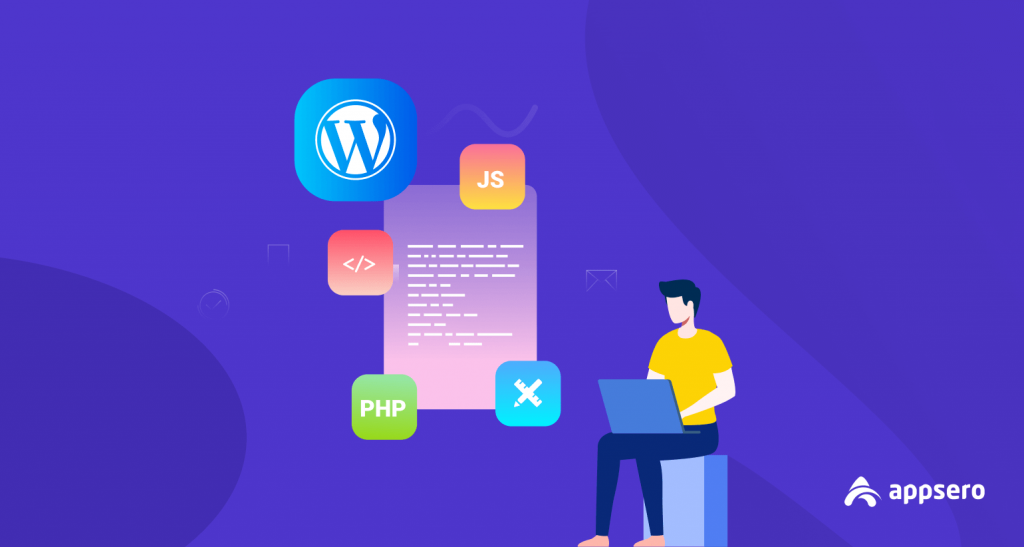
A DevOps engineer has to work in multiple environments. Their skills will mainly depend on the company’s team structure, the resources provided by the company, and the company’s goals.
However, some mastery is permanent for any DevOps engineer. They will require a brief understanding of every essential component of the delivery pipeline and the pros-cons of any externally installed service for the company’s well-being. Below, you will see the DevOps engineer requirements for a job.
#1. Cooperation
To lead a developer team, DevOps engineers need to know a lot about office manners and etiquette. The more efficiently they can collaborate with the associates, the faster they can reach their desired goals.
Almost 90% of companies prefer candidates with expertise in coding skills. So, prioritize these skills while learning others because you never know what will come in handy at some point. There is no reason to undervalue the impact of soft skills in a job interview or workplace. It’s better to be perfect than to regret later over a futile thing.
#2. Machine supervision
Any DevOps engineer will be in the management section of an office environment, so they must manage many devices and systems in the company. They need to know how to manage servers, databases, and security observations.
Moreover, they must also have a keen knowledge of operating external and internal network connectivity.
#3. In-depth understanding of DevOps tools
Different working environments have additional challenges in an office, and mastering them will require the proficiency of the preferred DevOps engineer tools. For working in 2 other areas, DevOps engineers have to understand their toolset to succeed.
The hard part is there is no limit to how many tools you need to grasp. However, it’s best to stick with the company-provided ones. These tools are crucial because they will be present throughout a DevOps engineer’s life cycle for building and monitoring infrastructure.
#4. Configuration and automation
Some DevOps engineer tasks in a working environment are directly involved in manufacturing and supply pipelines.
A DevOps engineer should know many automation tools to handle these tasks smoothly, such as Virtuoso, Subject7, and Avo Assure. Mainly they have to focus on their ability for coding and scripting.
For configuration, a DevOps engineer may need to understand additional tools. Some configuration tools, such as Ansible, Chef, Puppet, and similar implements, are used in many organizations’ working environments.
They want their managers to know about how they manage while working with a team. Moreover, a DevOps engineer must comprehend how to apply security and update existing systems. They should have knowledge about software testing reports.
#5. Know about “Container Orchestration”
In an IT office, there can be hundreds of stuff that a manager needs to handle regularly and continues to do so. These tasks may require expertise in many professional tools, which is pretty scary.
But, there is a tool section named container orchestration that can connect all the crucial systems, such as management, deployment, scaling, network connectivity, configuration, and automation.
This tool makes the standard configuration management implementation less necessary, and in some cases, even unnecessary.
To quickly finish processes, many office environments are adopting container orchestration tools. So, understanding these tools has become necessary for every DevOps engineer.
#6. Programming
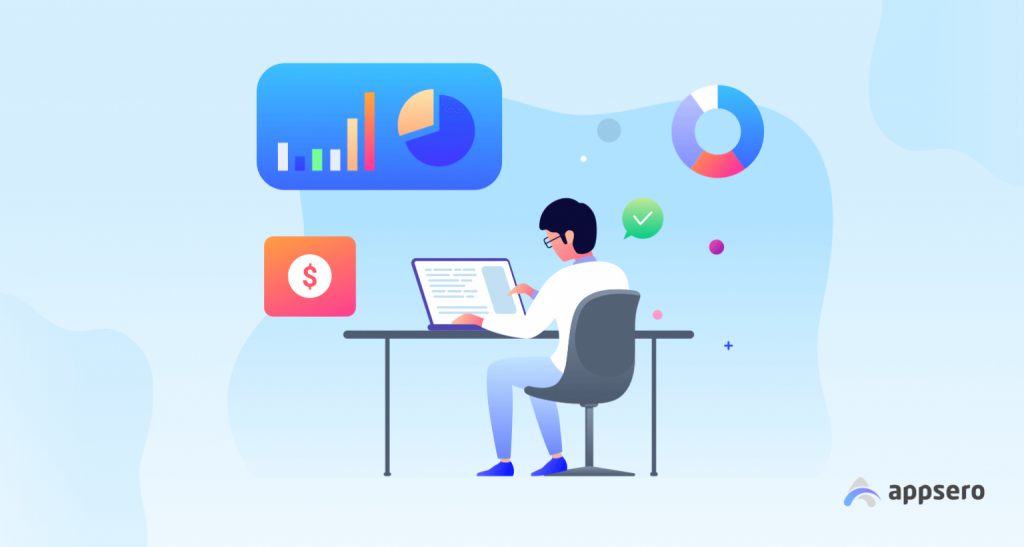
Coding and scripting are best for working with multiple applications and performing repetitive tasks. Coding comes in handy when a DevOps engineer is working in the developer section because they may have to give code reviews and help in debugging.
There is no limit on how many languages you may need, but it’s not actually necessary to learn a lot of programming languages. You can see the company tools and talk with the employee programmers to know what language they often use.
These days, most software and network companies prefer Java, C++, SQL, and Python.
#7. Customer-focused and proactiveness
In the end, every operation of a DevOps engineer has to be customer-focused. To this point, every action he takes should focus on the company goal and ultimately develop end-user satisfactory products. Well, it is easy to say but hard to achieve.
They should also lead their team to this primary objective. A DevOps engineer may have to work and collaborate with representatives, such as developers, project managers, testers, and CEOs from other brands in their working life cycle. So, clear contact and representing any idea has to be clear cut. Any faults in communication may lead to a problem later.
But everything is meaningless if a DevOps engineer isn’t devoted to his position. It’s hard to continue a job without passion. So, being proactive and dedicated to the work is a must. In the end, proactiveness will increase implementation and productivity.
#8. The DevOps methodology

A fascinating thing is, DevOps is an independent methodology, and it doesn’t have any fixed framework. But, brands use this methodology and form the framework according to their need.
The DevOps methodology aims to establish a connection between development and operations teams to finish any project faster. Through this, brands can develop software and deliver the finished product quickly.
Still, a person needs to lead people from both areas. So, companies hire an engineer to fill this space. A perfect DevOps engineer will know about the methodology and work in perfect sync. Moreover, the engineer can lead his subordinate team more flawlessly and with fewer errors.
So, it’s crucial to know about the DevOps methodology to maintain a suitable workplace environment. Overall, understanding the DevOps methodology can benefit both the team leader and the team.
Acquire the Right Skills to Become a Globally Acknowledged DevOps Engineer
Currently, being a DevOps engineer is all about management, collaboration, and the correct usage of DevOps tools.
However, in order to convert the experience into actual work, you must have a significant amount of knowledge in IT-related working environments. There is no easy way to learn this, but if you work hard, you might learn more than you thought.
So, if you want to know how to be a DevOps engineer? The correct answer will be that you already know all the crucial tips and steps. All you have to do is apply it in real life and go through challenges.
We are thrilled to be able to help you with our guide for becoming a DevOps engineer. If you have any other queries on this topic, let us know in the comments. Our experts will try their best to help you out.
Have a lovely day!
Subscribe To Our Newsletter
Don’t miss any updates of our new templates and extensions
and all the astonishing offers we bring for you.

Howdy! I just want to offer you a huge thumbs up for the excellent info you have right here on this post. I’ll be coming back to your blog for more soon.